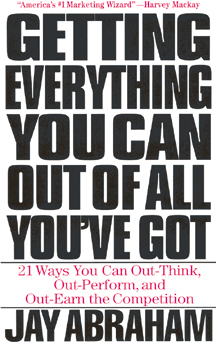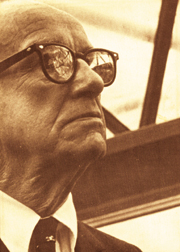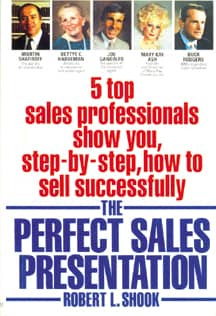How can you add value to products by providing services that your customers perceive as priceless?

Try To Read Good New Books On Marketing In Your Periods Of Visionary Thinking. Customers are important says Abraham, and "deserve the best reasoned, the best informed, the most objective and knowledgeable advice they can get about important emotional decisions."
As a new era in furniture retailing dawns, virtually everything is changing. Yet, for the visionary independent who takes the time to think hard about selling, advertising and management -- the opportunities have never been more promising.
A book titled "The Power Of Focus" (Canfield, Hansen and Hewitt), includes a story about a man who started four businesses, and failed at each one. Then, once again he started a new business, and succeeded in achieving wonderful and great wealth. The only thing he did differently in the new business, he said, was that he sat down one day a week by himself and did nothing but think about his new business.
"Yeah, right," you may be thinking. Who has time to do that?"
Yet, you can spare an hour a week, can't you? Or better, an hour a day. If you could spend an hour a day at creative, visionary thinking you would be thinking the equivalent of over nine 40-hour weeks a year. You would surpass your competitors in one year. Why? Because the odds are they won't take the time to do quality visionary thinking. Within a few years you would be one of the great visionaries in the furniture industry. Why? Because very few of the giants in the industry do much visionary thinking either.
What should you think about?
Should you think about selling furniture? Of course, that is what you do. But, you need to think about selling furniture in a brand new way. There are various names given to this new way of selling, but I prefer to call it Visionary Selling. A simple definition of Visionary Selling is selling in concert with a visionary company's long-range mission. In other words, selling according to a shared Vision. You may wonder if this is just a play on words, but it is not. It is the future of successful retailing.
I know there are a great deal of tactics that you have heard, such as active listening, asking questions, finding out the needs of a customer and so on. However, to understand Visionary Selling it is important to grasp the broad strategy of this method. Once you get this, the rest is easy - the tactics will develop themselves. Without a good strategy, you aren't going anywhere.
The problem facing the independent furniture retailer is simple. Product distinctions no longer rule in the consumer's mind. Faced with, for all practical purposes, products that are just like their competitor's products, the independent is left with only two choices: reduce prices or add value. How does one add value? Almost without exception, added value is services. To succeed in the new marketplace, you must out-service your competitors. Is this expensive? No, but it is difficult. You must shift your paradigm and think like a service marketer. And then you must impact the culture of your company and get everyone else to think like service marketers. To understand this clearly, read the following story from Jay Abraham's new book: Getting Everything You Can Out Of Everything You've Got.
"A farmer wanted to buy a pony for his little daughter. There were two for sale in town. Both pony's were alike in all respects. The first man told the farmer he wanted $500 for his pony, take it or leave it. The second man was selling his pony for $750. But the second man told the farmer he wanted his daughter to try out the pony for a month before the farmer had to make any purchasing decision. He offered to bring the pony out to the farmer's home along with a month's worth of hay to feed the pony. He said he would send his own stableman out once a week to show the little girl how to groom and care for the pony. He told the farmer the pony was kind and gentle, but to have his daughter ride the pony each day to make sure they got along together.
"Finally, he said that at the end of thirty days he'd drive over to the farmer's and either take the pony back and clean up the stall - or ask, then, to be paid the $750. Which pony do you suppose the farmer decided to purchase for his daughter?"
It's a slam-dunk, isn't it? Not because the added value of the extra service could be measured at over the $250 price difference, but because the added value of the extra service was priceless. What made it priceless? The farmer cared about the little girl and her future with her pony. If you are short-sighted you might say: "I can't go out to my customers' homes every week and make sure they are using a recliner correctly or check how they like their new living room." But if you can grasp the principle of service and added-value from this story, you are well on your way to passing your competition by. Because you understand that the second man didn't lower his price. Instead, he gave three priceless things to the farmer, all included in the amount of money he was asking:
- He included a caring attitude. He cared about the farmer's problem.
- His offer was loaded with the promise of free information and assistance that made the purchase worth more than the asking price.
- The seller added a risk-free offer that the farmer could trust, and could not resist. The second man took all the worry out of the pony purchase. The farmer's expectations were exceeded.
He couldn't go wrong, and that was priceless.
 |
Buckminster Fuller
The inventor of the geodesic dome had an insight that saved his life and made him rich and famous. This insight is also one of the pillars of modern marketing. |
A Philosophy ofCaring about People
This is the most important factor. It can't be effectively faked. It cannot be easily taught to immature salespersons. But if it is effectively modeled and demonstrated it can become part of your organization. Buckminster Fuller, the genius who invented the geodesic dome, discovered this insight back in 1927. It was the turning point of his life. In fact, it saved his life. Penniless, with a wife and baby and no prospects, he went alone to Lake Superior one midnight, planning to take his life. He was only about thirty years old. He stood there, shivering in the cold, when he had a great insight.
"I decided I had no right to eliminate myself. I didn't know my purpose, but I decided from that moment on to begin to convert all my experiences to the highest advantage of others. I am absolutely convinced that everything that happened to me since that time has been due to my commitment to this higher integrity."
He went on to live another fifty years, achieving remarkable fame and success. But almost no one remembers Buckminster Fuller for this remarkable insight. He was a scientist, and, because it wasn't "scientific," few saw the practical value of his formula for success. I am not saying you should give away the store. I am only reporting that a philosophy of caring about people - customers, employees, associates and vendors - is one of the modern keys to marketing success. Fuller's "higher integrity" means you cannot treat employees carelessly and expect them to care about customers. From the attitude of believing the company cares about them, your salespeople and support staff get the energy to add value to merchandise. This personal added-value cannot be achieved in any other way.
Information: it makes your products worth more
Product information is part of the "pony" story. It adds value to my leather sofa purchase when I can say the leather is premium top grain and the coils are eight-way hand tied. I'd like to tell guests that my dining room table was achieved by a 22 step hand-rubbed process. But product information can only go so far. If the "ponies" are exactly alike it will take more to distinguish the offer. Every advertisement you do should reflect a careful application of the "who, what, when, where, how and why" formula to achieve this distinguishment. I've explained in detail in previous articles that identifying yourself by putting in a sig and an address does not fully answer the "who" question in the consumer's mind. I see ad after ad in which the sigs could be swapped and no one would know the difference. A good offer has your unique factors, such as years in business, factory-trained staff, unusual guarantees, etc. woven through the copy, not just tacked on.
It is also important that sales consultants read the ads you produce. They should be saying the same things that your ads say, and using the same phrases. The integrity of a message should be part of the thinking of all the people in your organization. Incidentally, one of the great furniture sales organizations was the old Curtis Bros. store in Washington, D.C. Many of the "old-fashioned" ideas pioneered there are still usable. And, they can be done at zero cost. These ideas will add value to the shopping experience. You need every edge you can conceivably come up with to be successful in these highly competitive times. For example:
Curtis Bros. called their sales people "sales consultants." They had a rule that everyone in the organization would be called by their formal names. You were not allowed to say: "Hey Joe, how much is this sofa?" Shoppers were called "guests." So, you would hear over the loudspeaker messages like this: "Would a free sales consultant please go to the dinette section? We have a guest there with a question." This was a middle-end store, yet they delivered merchandise with "red carpets" and "white gloves." Doing, and maintaining, the quality of your presentation in this way takes time and is not easy, but it adds a percentage point of improvement here, another there. Before long, you are head and shoulders above competition.
Think about it. Take the time each day to get away and think about ideas to add value. Never take the attitude that this or that is trivial. As Michelangelo said: "Trifles make perfection, and perfection is no trifle."
In the next issue of FURNITURE WORLD we will explore more sales and advertising aspects of adding value. Your ads should be a treasure trove of unforgettable phrases that express your unique factors. Then your sales consultants will be able to develop personal "phrase banks" of statements that drive home your core philosophy of caring more about customers than any other furniture retailer in your city.
 |
This Book Was A Big Hit In 1986
It advocates a selling sequence that is supposed to persuade someone to buy something who does not want the product, doesn't need the product and will be sorry he ever bought the product. The concept of the clever, slick
salesperson is shattered in Abraham's book. |
Larry Mullins, President of UltraSales, Inc., has 30+ years experience in the front lines of retail furniture marketing. Larry's mainstream executive experience, his creative work for "promoter-specialists," and study of advertising principles has enabled him to continually develop new High-Impact strategies for independent furniture retailers that are sound, complete, and innovative. Inquiries can be sent to Larry care of FURNITURE WORLD at editor@furninfo.com.